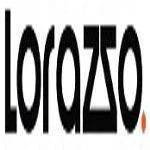Every year, individuals and businesses in the Netherlands must report their income to the Dutch Tax and Customs Administration. For many people, this process brings up the question: What is IB declaration, and how does it connect with filing an income tax return?
If you find tax terms confusing, you’re not alone. Understanding the basics of IB declaration and income tax returns can make the process easier, less stressful, and even more beneficial. In this article, we’ll explain what these terms mean, how they affect you, and why professional guidance can save time and money.
What Is IB Declaration?
The term IB declaration refers to the annual income tax declaration in the Netherlands. “IB” stands for Inkomstenbelasting, which means income tax in Dutch.
Every year, residents must declare their worldwide income, assets, and certain deductions to the tax authorities. This declaration allows the authorities to calculate how much income tax you owe, or whether you’re entitled to a refund.
In short:
-
IB declaration = Income tax declaration.
-
It applies to individuals, self-employed professionals, and certain business owners.
-
It ensures you pay the correct amount of tax based on your situation.
Who Needs to File an IB Declaration?
You must submit an IB declaration if:
-
You are a resident of the Netherlands with taxable income.
-
You are self-employed, a freelancer, or run a sole proprietorship.
-
You have savings, investments, or property that generate income.
-
You receive income from abroad but live in the Netherlands.
-
You are a non-resident with taxable income from Dutch sources.
In other words, almost everyone living or earning in the Netherlands will need to deal with the IB declaration each year.
The Role of the Income Tax Return
The income tax return is the actual process of submitting your IB declaration to the Dutch Tax and Customs Administration. This is usually done online, and much of the information is already pre-filled by the authorities.
When you file your income tax return, you report:
-
Income from employment, business, or freelance work
-
Income from savings and investments
-
Property or real estate assets
-
Eligible deductions, such as mortgage interest or healthcare costs
-
Allowances or tax credits
The outcome of your return will show whether you must pay additional tax or are entitled to a refund.
Deadlines for IB Declaration and Income Tax Return
The Dutch tax year runs from January 1 to December 31.
-
The portal for income tax returns usually opens in March.
-
The deadline for filing is typically May 1 of the following year.
-
Extensions are possible if requested in time.
Meeting deadlines is essential. Late submissions can result in penalties or interest charges.
Common Challenges in Filing an IB Declaration
Even though the Dutch tax system is relatively efficient, many people struggle with:
-
Understanding which deductions apply to them.
-
Correctly reporting foreign income.
-
Declaring savings and investments.
-
Navigating the rules for entrepreneurs and freelancers.
-
Making mistakes that trigger audits or fines.
This is where professional support with income tax returns can make a big difference.
Benefits of Getting Professional Help
Working with a tax advisor for your IB declaration and income tax return offers several advantages:
-
Accuracy and Compliance – Experts ensure that everything is correctly reported.
-
Maximizing Deductions – Advisors help you benefit from tax credits and allowances you may not know about.
-
Time Savings – Filing becomes much faster and less stressful.
-
Avoiding Penalties – Professional handling reduces the risk of errors and fines.
-
Long-Term Planning – Advisors can guide you on tax-efficient strategies for the future.
IB Declaration for Entrepreneurs and Freelancers
If you’re self-employed, filing an IB declaration can be more complicated than for salaried employees. Entrepreneurs often benefit from tax deductions such as:
-
Entrepreneur’s allowance (ondernemersaftrek)
-
SME profit exemption (MKB-winstvrijstelling)
-
Self-employed deduction (zelfstandigenaftrek)
These deductions lower taxable income, but rules change frequently. Having a tax advisor ensures you get the most out of your return while staying compliant.
How IB Declaration Connects with Income Tax Return
It’s simple: the IB declaration is the content, while the income tax return is the process.
-
The IB declaration details your income, assets, and deductions.
-
The income tax return is the action of submitting that declaration.
Both are essential for determining how much tax you owe or how much refund you receive.
Tips for a Smooth Income Tax Return
-
Keep financial records organized throughout the year.
-
Check pre-filled forms carefully-they may contain errors.
-
Know which deductions apply to your situation.
-
File early to avoid last-minute stress.
-
Seek advice if your income or assets are complex.
Final Thoughts
Understanding what an IB declaration is and how it relates to your income tax return makes the Dutch tax process less overwhelming. Whether you are an employee, a freelancer, or a business owner, filing correctly ensures compliance, avoids penalties, and can even save you money through refunds or deductions.
If the process feels complicated, don’t hesitate to seek professional help. Tax advisors provide clarity, maximize your benefits, and give you peace of mind. In the end, managing your IB declaration correctly is not just about taxes—it’s about building financial stability for the future.
FAQs
1. What does IB declaration mean in the Netherlands?
IB declaration refers to the annual income tax declaration (Inkomstenbelasting) that residents must submit to the Dutch Tax Authorities.
2. Do I always need to file an IB declaration?
Most residents do, especially if they earn income, have assets, or qualify for deductions. In some cases, the tax office sends an invitation.
3. Can I get a tax refund through my IB declaration?
Yes. If you overpaid taxes during the year, your income tax return may result in a refund.





